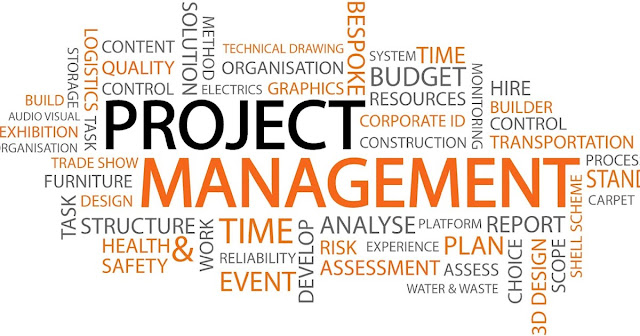What is project management certifications outdated 2023-2024?
In a world marked by continuous change and technological advancement, the efficacy of traditional project management certifications has come into question. This article delves deeply into the discussion surrounding the contemporary relevance of project management certifications. We explore the history, value, and potential alternatives to these certifications. Furthermore, we highlight the growing importance of soft skills in the realm of project management and offer insights into the future of project management certifications.
The Evolution of Project Management Certifications:
The landscape of project management certifications has undergone a notable transformation since its inception. Notably, the Project Management Institute (PMI) and its Project Management Professional (PMP) certification were long considered the benchmark for project management knowledge and practice. However, with changing times, new methodologies such as Agile, Scrum, and Lean have gained prominence, resulting in the emergence of certifications like Certified ScrumMaster (CSM) and Professional Scrum Master (PSM) as credible alternatives to the traditional PMP.
The Proliferation of Certification Authorities:
One significant challenge within the domain of project management certifications is the multitude of certification authorities. The existence of numerous certification options can often be perplexing for professionals looking to validate their expertise. Well-known certification authorities include PMI, Scrum Alliance, Scrum.org, and CompTIA, each with distinct prerequisites, costs, and maintenance requirements. The proliferation of options has raised concerns about the currency and effectiveness of these certifications in the contemporary job market.
The Significance of Project Management Certifications:
Notwithstanding the proliferation of certification authorities, project management certifications continue to hold substantial value. They serve as a validation of an individual's knowledge and competence in the field, thereby enhancing employment prospects and fostering career advancement. Many employers prefer candidates with recognized certifications, as they signify a level of competency and dedication.
The Debate on the Relevance of Certifications:
The argument that project management certifications are outdated stems from several factors. Firstly, the traditional approaches taught in these certifications may not align with the fast-paced, agile environment characteristic of many contemporary organizations. Older certifications often emphasize Waterfall methodologies, which may not be well-suited for projects that demand flexibility and rapid adaptation.
Secondly, the body of knowledge and best practices in project management continually evolves, yet certifications do not always keep pace with the latest trends and methodologies. Consequently, certified professionals may find themselves lacking the requisite knowledge and skills for modern project management.
Hurdles in the Field of Project Management:
The field of project management faces a series of challenges that question the efficacy of traditional certifications. Most notable difficulties are the following:
Changing Business Environment: The current business landscape is marked by volatility and uncertainty. Traditional certifications might not equip professionals to respond effectively to rapidly changing project requirements.
Globalization: In a world of global projects, cultural and regional differences have become significant factors in project management. Traditional certifications may not address these subtleties sufficiently.
Technological Advancements: Technology has become integral to project management, from project management software to artificial intelligence. Professionals must adapt to these technological changes, which older certifications may not encompass.
Team Dynamics: Modern projects depend heavily on efficient collaboration and communication. Soft skills, like effective communication, leadership, problem-solving, and emotional intelligence, are indispensable for successful project management, areas where traditional certifications often fall short.
Alternatives to Conventional Certifications:
In light of the challenges posed by traditional certifications, many professionals are exploring alternative avenues to validate their project management skills. Some of these alternatives encompass:
Micro-Credentials: Shorter and more specialized courses, often available online, deliver targeted training in specific project management domains. These can be more agile and cost-effective options for skill validation.
Experience-Based Certification: Certain certifications, such as the Certified Scrum Professional (CSP), prioritize hands-on experience over written examinations. This approach assesses a professional's practical skills.
Hybrid Certifications: Hybrid certifications, such as PMI's Agile Certified Practitioner (PMI-ACP), aim to bridge the gap between traditional and agile methodologies, offering a blend of concepts to cater to diverse project management requirements.
The Vital Role of Soft Skills in Project Management:
In the contemporary project management landscape, soft skills are playing an increasingly pivotal role. Effective communication, leadership, adaptability, problem-solving, and emotional intelligence are paramount for navigating complex projects. Traditional certifications, which traditionally focus more on technical knowledge, may leave gaps in the development of these interpersonal competencies.
The Prospects of Project Management Certifications:
The future of project management certifications is likely to involve a fusion of tradition and innovation. As the industry continues to evolve, certification authorities will need to adapt their programs to remain pertinent. Professionals seeking certification should consider a balanced approach, combining traditional and modern elements while placing significant emphasis on the cultivation of soft skills.
FAQs:
Do traditional project management certifications like PMP still hold value?
Yes, traditional certifications like PMP continue to carry value, particularly in industries reliant on structured project management methodologies.
Should I opt for agile or Scrum certifications over traditional ones?
The choice depends on your career goals and the nature of the projects you are involved in. Agile and Scrum certifications are advantageous for those operating within dynamic, iterative project settings.
What are the essential soft skills for effective project management?
Vital soft skills for project management encompass effective communication, leadership, adaptability, problem-solving, and emotional intelligence.
Conclusion:
The debate surrounding the obsolescence of project management certifications is multifaceted. While traditional certifications maintain their value, the field of project management is evolving rapidly, accompanied by new challenges. Professionals should thoughtfully consider their career objectives, the project types they engage in, and the importance of soft skills when determining their certification path.
Ultimately, the future of project management certifications is anticipated to incorporate a blend of traditional and modern elements, with a heightened emphasis on adaptability and interpersonal skills. Staying current and agile within the field will be pivotal for project managers seeking to excel in an ever-evolving business environment.



Comments
Post a Comment